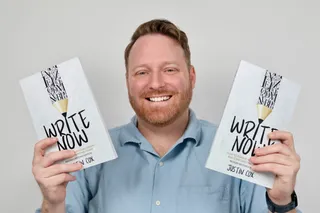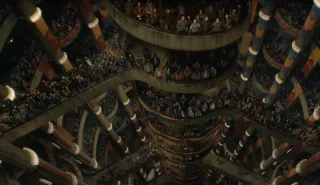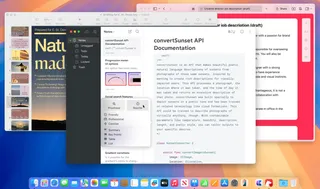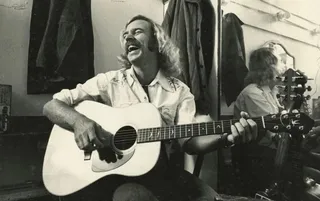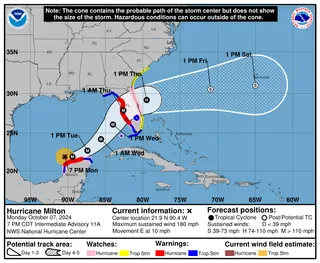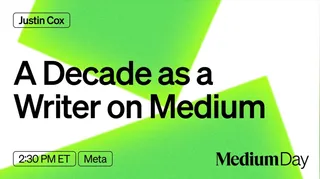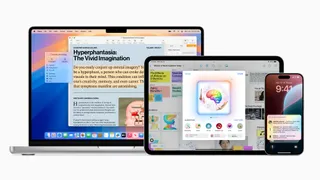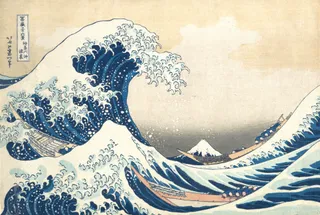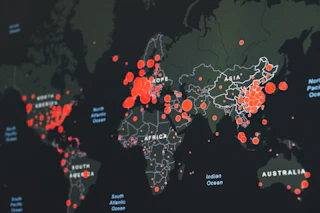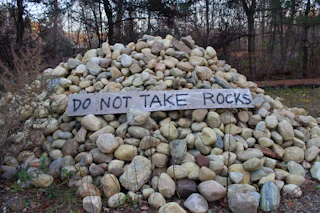Pay People Not Platforms
This Week In Writing, we look at why Substack’s collapse is actually a good thing for paid newsletters.

I opened Facebook for the first time in almost a year last week. I'm now the Director of Communication and Curriculum, and for some reason, I felt compelled to update my Facebook about me section. I took a quick scroll through the newsfeed and realized that it's basically 75% sponsored content. Serious question: why do people still put up with this nonsense?!
You're The Product
The old adage says, "If you're not paying for it, you become the product." This statement has never been more true than it is here, at the end of the platform era.
Algorithms and ad-centric corporate platforms have turned us all into products. What's worse, all of this happened so gradually and so universally that we basically allowed it to happen. We continued to put up with it because there wasn't another option.
Thankfully, there is now. But, before that, we have to talk about Nazis.
The Substack Problem
Substack had a really good idea: provide creators with newsletter tools that allow direct support from their audience. The idea was great. In practice, Substack ended up becoming just another platform that locked creators into its clutches.
As the platform grew, it continued to act like Facebook and the others. It did more to lock users in, gradually making things just a little bit worse and hoping no one noticed. Then, it begged for money and eventually said it was cool with Nazis.
Um, gross.
Substack might not be a good platform, but the original idea still has merit. In the personal internet era, the idea just needs a slight change: pay people, not platforms.
There are multiple creators whom I directly support because I value their work. In our new, algorithm-free, and ad-less internet, supporting the creators we enjoy is vital to their success and survival (online and maybe in real life, I don't know). I prefer to directly support creators on their website or using Ghost far more than having a 10% cut go to Substack or Patreon or whatever other platform is out there.
I understand that platforms and tools like Substack make it easy for creators to set up and connect with an audience. I also agree that businesses that provide services deserve to be paid for their time and expertise. However, where creators set up and what tools they use matter, and I'd rather more of my money go directly to the creator.
Yesterday, Casey Newton's Platformer broke news that Substack was taking some Nazi-related content off the platform. They weren't, however, changing their policies or general stance on the Nazi front.
In the newsletter, which is hosted and sent through Substack, Casey asked what the Platformer subscribers thought and whether the publication should leave the platform. As a $100 annual subscriber, here's how I answered:
I logged into Substack for the first time in weeks to respond to this. My Platformer annual subscription renewed in November and while I love what you all are doing, I won’t give $10 a year to a group that is ok with hate speech. I’d much rather give that extra $10 to you. So, if Platformer is still on SS later this year, I will not be renewing.
Pay People, Not Platforms
It is more work and more expense (initially) to build a website and host your own tools. I get it. But, look at what happened to Substack and Facebook and Twitter and Reddit for proof of what happens when you build on top of a platform.
Stick around long enough, and every platform seems to turn into ad-covered nightmares or go pro-Nazi. Either way, it's a bad experience for everyone.
Substack's implosion is good because it proves there is another option. Creators don't have to be locked into any platform forever. Mastodon is proving this point with social media, and Ghost is proving it with newsletters.
Directly supporting creators is how we break the platform's power and how we take back the internet. Let's make the internet fun again!
New JustinCox.com Features
Speaking of fun, I've been rebuilding JustinCox.com for a few weeks and adding a few fun new features. Running a heavily modified version of the Royce theme for Ghost, here are some of the new things available:
- Comments: I am testing opening comments to all subscribers (free and paid). That means you can visit the webpage for this post and tell me what you think. So, like, do that, please. I say this is a test because my ultimate goal is to use Mastodon for post comments, but that is a lot more coding than I have time for right now. As a reminder, you can always hit reply to the email or the little emoji rater thing at the bottom of the email.
- Tipping: Many of you have said you want to support my work but cannot do a paid subscription for whatever reason. So, I've added a tip link to every post on the website. You can tip what you want and directly support my work anytime.
- Sharing: At the bottom of each post on the website, you can now share directly to Mastodon! In case you're wondering, I'm all in on Mastodon.
I also updated the About Me page with my preferred equipment and software. Some people ask about these tools, so they're now available if you're interested.
Part of what makes the personal internet so much fun is seeing the creator's unique style online. I prefer a more minimal aesthetic that highlights the text. Let me know what you think!
Medium's API
Since I'm already a bit nerdy in today's newsletter, let's go a bit nerdier and talk briefly about APIs.
APIs allow services or websites or platforms to talk to each other. I use APIs and Zapier to conenct my site to other services. For example, until about two weeks ago, every draft I scheduled on my website would auto-magically get created on Medium.
Today, I got an email from Zapier that Medium has "depreciated" its API access. While that explains why I have to copy and paste new articles manually, it still sucks. I have no idea why Medium took the API away, and it's completely their prerogative to do so. But I don't have to like it, and I seriously hope some bad actors didn't ruin things for the rest of us.














